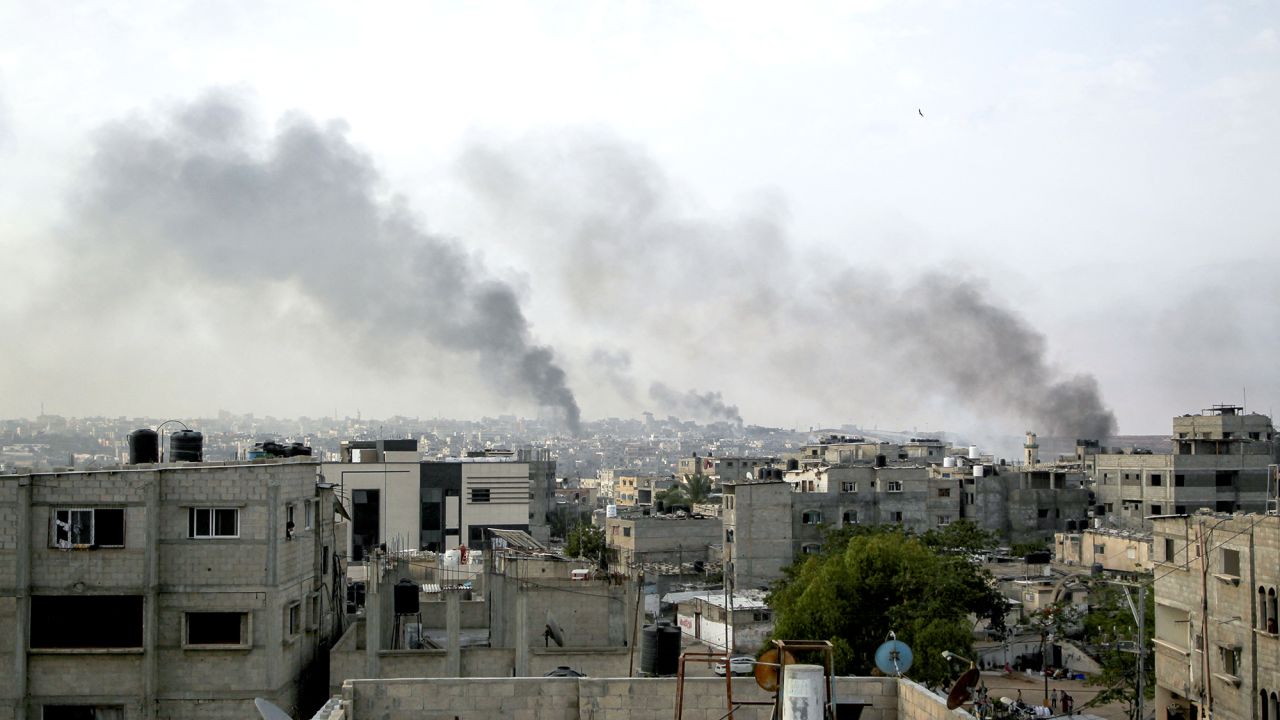The situation in Rafah, Southern Gaza, has escalated to alarming levels, drawing significant international condemnation. Israeli military tanks have been reported in central Rafah, marking an intensified phase in the Israel Defense Forces (IDF) operations in the region.
Israeli Prime Minister Benjamin Netanyahu has acknowledged a tragic mistake in recent operations that resulted in extensive civilian casualties. The IDF's attack, purportedly targeting Hamas military facilities, led to widespread destruction and a deadly fire in a camp housing displaced Palestinians. Despite Israel’s assertion of operating within the bounds of international law, global leaders and organizations are demanding the cessation of military actions.
The Biden administration has exercised caution by warning Israel against a full-scale invasion unless civilian safety is guaranteed. Despite improvements in the Israeli plan, international pressures continue to mount, particularly from the United Nations and European allies, to adhere to the International Court of Justice (ICJ) order demanding an immediate halt to operations in Rafah.
Health officials have reported severe casualties, emphasizing that nearly half of the victims are women and children. The number of displaced residents in Rafah is staggering, with around 1.3 million Palestinians initially sheltering in the city; this has drastically decreased due to ongoing military actions. Eyewitnesses recount harrowing scenes of devastation, with tents melting from fires and people suffering horrific injuries.
The IDF maintains that Hamas forces in Rafah continue to pose a threat, evidenced by recent rocket attacks on Tel Aviv. The military has underscored its strategy of selective and targeted operations to neutralize these threats, despite significant international criticism.
Global reactions have been swift and fierce. French President Emmanuel Macron and EU officials have called for an immediate ceasefire and strict adherence to international humanitarian law. The health crisis has been exacerbated, with overwhelmed hospitals struggling to cope with the influx of wounded civilians.
Reports of the attack on the displaced persons’ camp have incited further scrutiny, as international bodies and NGOs on the ground condemn the military actions as violations of humanitarian principles. The United Nations Relief and Works Agency for Palestine Refugees (UNRWA) has described the situation as catastrophic, highlighting Gaza as 'hell on earth.'
Efforts for diplomatic resolutions and ceasefire negotiations continue, with Egypt playing a critical role. Egypt’s recent engagement is notably strained after an Egyptian security officer was killed in the cross-fire on the Gaza border. European nations have voiced their readiness to enforce international rulings and uphold humanitarian standards, pressing Israel for compliance.
The IDF has expressed its regret over civilian harm and has initiated investigations into the incidents to ascertain accountability. Still, the military operations persist, and the humanitarian toll keeps rising. The International Red Cross and various humanitarian organizations continue to call for urgent relief measures and an end to hostilities.
- Netanyahu's acknowledgment of a 'tragic mistake' highlights the intense scrutiny Israel faces regarding its military operations in Rafah.
- The Biden administration's stance underscores the delicate balance the US seeks to maintain in supporting Israel while advocating for the protection of Palestinian civilians.
- Eyewitness accounts from Rafah provide a grim testimony of the human cost of the conflict, with descriptions of children and families suffering dire consequences of the ongoing violence.
- France’s unequivocal condemnation reflects broader European discontent and the urgent need for an internationally coordinated response to ameliorate the humanitarian disaster in Gaza.
- Humanitarian organizations such as UNRWA and the Red Cross continue to document and respond to the evolving crisis, underscoring the dire need for immediate relief and cessation of military activities.






